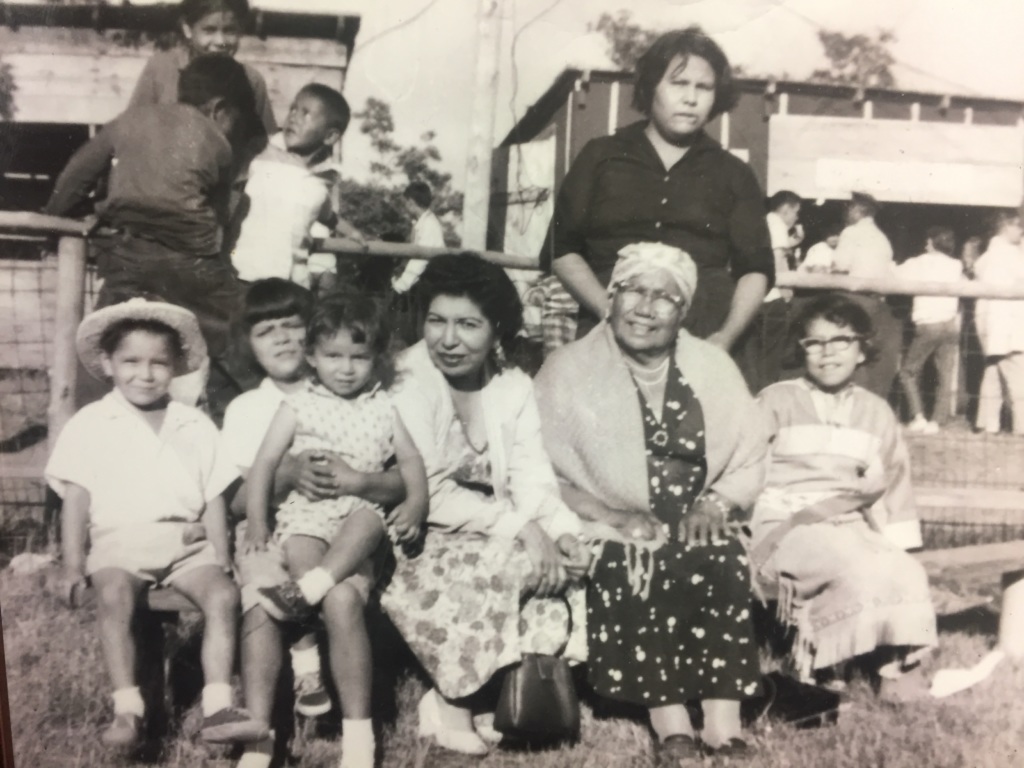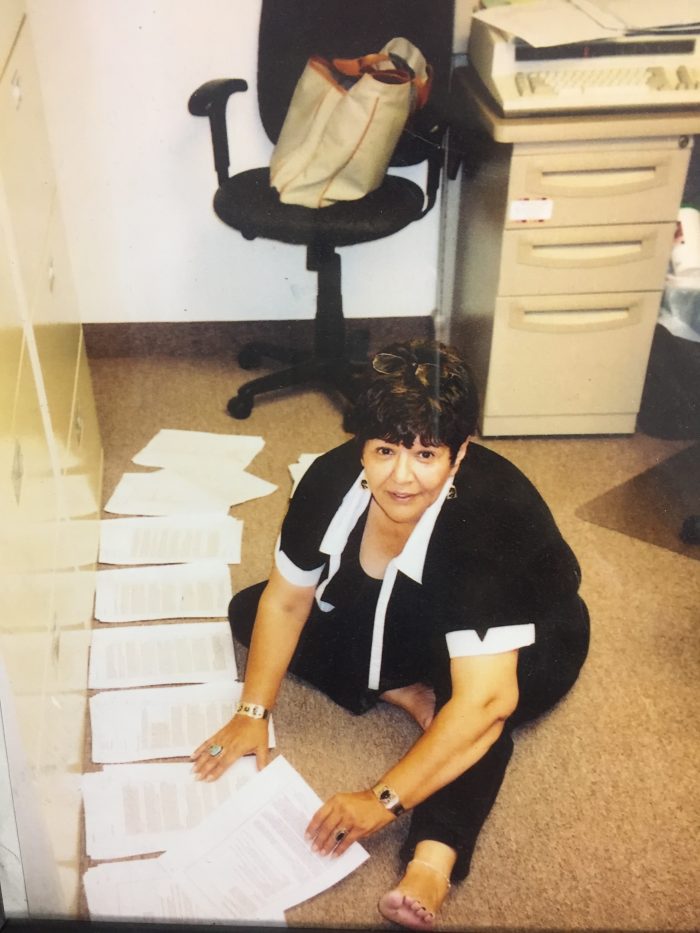
EBITDA Multiples by Industry: How Much Is Your Business Worth?
We present data on EBITDA multiples across eight industries, along with detailed analysis and tips to improve your multiple before exiting.
Tags

Himmat Singh (left) and Pat Yager (right) at a recent Powwow
Pat Yager, an Ojibwe Native American, founded home care agency Circle of Life Home Care in 2007. “I had seen so much devastation in the Native communities,” Pat says. “Native people are seven times the national average to have something major go wrong with their health. Some people die at 40 or 50 years old — but it doesn’t even shake us up. We’ve become numb to it, and it’s devastating.”
Over the course of a decade, Pat grew Circle of Life to a $3.5 million EBITDA business with 20 locations across 7 states. The company’s mission is to “Honor Those We Serve,” and Pat attributes their success largely to this focus. “Indian communities have been beat up a lot, our elders in particular.” There was a pervasive need for a dedicated resource to address the needs of an aging population.
Pat poured her heart and soul into the company for ten years — meeting with tribal chiefs, writing personalized cards to every single client at Christmas, opening up dozens of new offices, hiring staff, overseeing the management team, and more. In 2016, ready to slow down, she began to explore a potential sale.
Pat signed an engagement with a healthcare specialist investment bank, which used Axial to market the deal. Thanks to Axial, she connected with Himmat Singh, an experienced operator who had formed search fund Maximus Capital Partners two years earlier.
Himmat had spent those years “building out lists and attending industry events to establish relationships and credibility with intermediaries and brokers.” He found Axial “the most effective platform to reach a larger audience and build my network.” [pull_right]“Axial was the most effective platform to reach a larger audience and build my network.”[/pull_right]
Both Pat and Himmat felt an immediate connection from their very first meeting, and Himmat hoped he had finally found the deal he’d been waiting for.
But things didn’t go as planned, and the deal fell apart. A few months later, however, Pat and Himmat alighted on another type of partnership that fit both their goals. Instead of his search fund acquiring the business, Himmat simply joined as the company’s CEO.
We talked to Himmat and Pat about the company’s origins, why the initial deal fell apart, and what’s next for Circle of Life Home Care now that Himmat has come on board.

Pat as a child with her family
Pat grew up in northern Minnesota, living both on and off Native American reservations. She was working full time for a home care agency when she had the idea to start a service designed specifically to serve Native Americans. She’d seen friends and family struggle on their own with illness and old age, unwilling or unable to bring in caretakers from outside the community.
Getting started wasn’t without its roadblocks. At a community meeting Pat organized early on, only a single person showed up. She had bought a 50-cup coffee maker and 100 muffins she couldn’t afford.
Others might have been defeated by the turnout. Not Pat. In a testament to her unflagging optimism, she recalls that night not as a failure, but as a blessing. “I was so lucky that one person was there to help get me started, because she was already an important advocate in the community. And of course I sent her home with all kinds of muffins!”
Pat kept working her full-time job while hatching plans for her agency. She officially started Circle of Life Home Care in 2007. In addition to employing its own staff of personal care attendants, Circle of Life trains and licenses family members or friends to care for loved ones. “For many of the caregivers, this is their first job.” This dual mandate — providing culturally sensitive home care as well as training and jobs for community members — is central to Circle of Life’s business model.

Pat during the early days of Circle of Life Home Care
Soon, referrals poured in from the state government, Indian Health Services, past clients, and others, and the business grew from there. Pat was careful to keep a sense of humility and respect even as the company expanded. “When I go into a new reservation, I always talk to the tribe and to the chief. And I make sure to say, ‘I didn’t come here to harm or to step on anyone’s toes. What I would like to do is help the community.’”
One of the proudest moments of her career took place about a year ago, after a tribal meeting. “Afterwards, the chief came up to me and said he had a question for me. He asked, ‘Can you get my mom and dad into your program?’ I will never have a bigger honor than that.”
Himmat Singh was frustrated with the search fund model when he connected with Pat via Axial in 2016. He had previously signed an LOI with another company he found through Axial, but the deal had fallen apart when he couldn’t convince any of his LPs to join the company’s board. “I needed companies of a very specific type and size, with recurring revenue and a certain level of growth, but also with a reasonable valuation.”
After so many false starts, Circle of Life seemed like a promising possibility. “They had a Medicaid model, which I generally wasn’t a huge fan of, but there were so many things that were unique about the business,” says Himmat. “First, the fact that it was uniquely targeting Native Americans was a huge barrier to entry for any potential competitors. They also had a significant amount of scale. I saw the opportunity to expand from home care into training and nursing, and even acquire durable medical equipment companies.”
Himmat also perceived something special in Pat and her approach. “From the first time we spoke, I knew the business was a labor of love. We met and connected on a personal level, and then I travelled to the offices, which are beautiful and each unique to the Native American community Circle of Life serves.”
Himmat issued an LOI right after meeting Pat.
But as with previous deals, complications soon emerged. The company’s EBITDA was less than Himmat had initially thought, which made it a hard sell to his LPs. Their accounting team was slow to get Himmat and his LPs additional financial information they needed to move forward. After investing so much of herself into the business for so long, Pat was having second thoughts about leaving it all behind.
So negotiations stalled, until ultimately the deal fell apart.
But Pat wasn’t about to let Himmat get away. “I knew from the first time we met that he was the right person to run the company. His compassion, his caring, his desire to do the best by Native people — it came across loud and clear to me.
“When I hire, I don’t hire for the diploma or the paperwork. All that comes from the brain. I hire for the heart. If they’ve got a good heart, you can train everything else. But you cannot train a good heart.” [pull_right]“I hire for the heart. If they’ve got a good heart, you can train everything else. But you cannot train a good heart.”[/pull_right]
After the acquisition fell apart, Pat went back to Himmat with an offer for him to take over the CEO role at Circle of Life. With Himmat’s search fund about to expire, the timing was right. He officially took over the chief executive role in January 2017. “When I join a new business, I always try to find a key project which helps me connect with the company,” he says. To start, he overhauled Circle of Life’s website, rebranding to unify the multiple brands of the company’s various independent offices.
The transition hasn’t been without challenges. In some ways, these were more pronounced because Himmat hadn’t invested in the business. “When you come in and buy the company out, you have the license to make more radical changes more immediately,” says Himmat. “As a new CEO, one has to be very sensitive from a cultural perspective.” Circle of Life is largely a family business, and Pat’s sisters, stepsons, and other family members are involved on a day-to-day basis in running the business. “But I’ve been frank with Pat about the fact that if I’m going to add value, I need some open space to do it. It is possible to have too many chefs in the kitchen.”
When evaluating Circle of Life as a potential acquisition, Himmat was focused primarily on acquiring add-ons to expand their services beyond personal care into the medical realm. But further analysis revealed that the margins on the non-medical side were actually better than they would be on the medical side. “We’re still open to acquisitions, but first we want to lay the foundation and expand our existing business to the extent possible,” says Himmat. Moving forward, they plan to add more offices across the U.S. to serve more Native American tribes.
At the same time they evaluate the larger business strategy, the entire company remains focused on its core mission: ”Honoring Those We Serve.” Says Pat, “Every one of our offices, better have coffee on at eight o’clock in the morning and a plate of cookies on the side, ready to greet our elders. Many of them are lonely, and they come in just to talk. The world stops when a client walks through our office door.”
